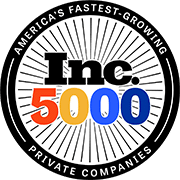Accessibility Services: ADA and 508 Compliance
Your audience is diverse, and so are their needs. For those with visual, hearing, or neurodiversity impairments, compliance might entail adapting materials into braille or large print formats, captioning and/or describing video content, or optimizing pages for screen readers, our services are designed to address a number of accessibility needs.
Navigating Standards for Digital Accessibility
In today’s digital landscape, ensuring your content is accessible to all is not just a legal mandate but a key to connecting with a broad audience. Eriksen will help you comply with ADA and Section 508 standards, making your digital materials accessible to everyone, including the 42+ million Americans living with disabilities.
Understanding ADA Compliance
The Americans with Disabilities Act (ADA) is a landmark civil rights law, established in 1990, that prohibits discrimination against individuals with disabilities in all public domains. Originally, the ADA targeted physical spaces, but with the advent of the digital era, ADA compliance has increasingly been applied to digital accessibility. This means that websites, mobile apps, and all forms of digital communication must be accessible to people with a variety of disabilities, such as visual impairments, hearing loss, motor difficulties, and cognitive limitations.
What is Section 508 Compliance?
Section 508 of the 1973 Rehabilitation Act was an earlier step toward the (more universal) ADA. It is still in full force, and it requires that federal agencies and institutions receiving federal funding make their electronic and information technology accessible to people with disabilities. This broad umbrella covers websites, computer software, videos, apps, and other digital platforms. Compliance ensures that individuals with disabilities have equal access to and use of information and data on these formats, comparable to the access of those without disabilities.
WCAG Guidelines: A Global Standard for Accessibility
Launched in 1999 and continuously developed since by the World Wide Web Consortium (W3C), the Web Content Accessibility Guidelines (WCAG) are a set of recommendations for making web content more accessible. While not a legal requirement like the ADA or Section 508, WCAG standards are widely adopted and endorsed globally. They provide a comprehensive set of standards to ensure that the internet can be a resource for people with a wide range of disabilities. Following WCAG guidelines not only helps organizations comply with ADA and Section 508, but also aligns digital content with global best practices in accessibility.
PDF/UA: Ensuring Universal Accessibility in PDF Documents
Established in 2012, the PDF/UA standard outlines specific requirements for making PDFs fully navigable and interpretable by assistive technologies like screen readers. This standard not only aids in complying with ADA and Section 508, but also guarantees that individuals with disabilities can independently and efficiently access PDF content. PDF/UA mandates that the experience of using a PDF document should be of the same quality for users with disabilities as it is for those without. Given the widespread use of PDFs as digital documents, ensuring their accessibility is an important step toward dissemination of inclusive information.
Streamlined Compliance, Tailored to Your Needs
Navigating the complexities of digital accessibility standards can be challenging. We specialize in simplifying this process for you. Our end-to-end service, encompassing translation, typesetting, and compliance, means you have a single, coordinated solution. This approach eliminates the hassle of dealing with multiple vendors, saving you time and ensuring cohesive, compliant results.
Technical Prowess in Digital Compliance
Leveraging cutting-edge technology, we ensure that your digital content, whether it’s on websites, in documents, or via multimedia, meets the standards of WCAG or PDF/UA. We meticulously adapt your digital assets to be fully compliant and tagged, from providing alt text translations for images to ensuring that all digital content is navigable and usable by people with disabilities.
Typographical Expertise in Accessibility
The appearance and readability of your materials matter. Our typographical experts will optimize your materials for easy reading by diverse individuals, including those with visual impairments such as low vision or a reading disability such as dyslexia. Our team accommodates the specific requirements of different languages to make textual information accessible to all users, irrespective of ability.
Braille Transcription
Braille makes materials accessible to the blind and visually impaired, supporting an organization’s dedication to inclusivity and regulatory compliance. With our expertise in transcribing braille and providing alternative formats like large print, your organization can effectively cater to a broader audience, establishing a commitment to universal access.
ASL Interpreting
With over 500,000 Americans primarily using American Sign Language (ASL) to communicate, our interpreting services bridge the gap, ensuring effective communication in a wide variety of settings, from cultural events to virtual meetings. We work with professional interpreters who are not just fluent in ASL; they are part of the Deaf community and experts at fostering seamless communication, crucial for engaging discussions and sensitive interactions. By partnering with us for your ASL needs, you’re ensuring that every participant, regardless of their hearing ability, is fully included and engaged.
Meeting Diverse Accessibility Requirements
Adhering to accessibility standards in digital content is not just about legal compliance; it’s about embracing inclusivity and ensuring equal access for all users. And by conforming to WCAG guidelines, your organization’s content can resonate with everyone.
 Named to the 2024 Inc. 5000 list of fastest-growing companies and ranked among the world’s top 100 language service providers by CSA Research
Named to the 2024 Inc. 5000 list of fastest-growing companies and ranked among the world’s top 100 language service providers by CSA Research